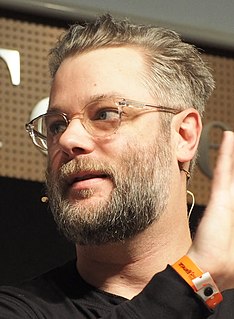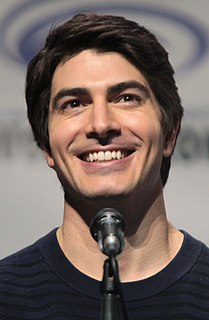A Quote by Cory Barlog
God of War' is traditionally known for these cinematic, pull back cameras, which I think are fantastic.
Related Quotes
And I could see - this franchise is very successful for Sony and I think it's awesome. I was big part of making that a success for them and I think it's great that they should continue doing it, but I don't want to make 'God of War IV' and 'God of War V' and 'God of War: The Expansion Pack' and 'God of War: The Role-Playing Kart Racing Game.'
Everybody has their iPhone cameras, BlackBerry cameras, and I see those cameras pointed up at me all the time now, which is actually really good because of what it does for me and my band. There is no time for us not to be on our toes because they're on all the time whenever you're playing. I think it's very healthy.
Each of us can discuss God inasmuch as he has known the grace of the Holy Spirit; for how can we think of or discuss what we haven't seen, or haven't head of, or don't know? The saints say that they have seen God, but there are people who say that there is no God. Clearly, they say this because they haven't known God, but this does not at all mean that He is not. The saints speak of that which they have truly seen and know.
Poetry, even when apparently most fantastic, is always a revolt against artifice, a revolt, in a sense, against actuality. It speaks of what seems fantastic and unreal to those who have lost the simple intuitions which are the test of reality; and, as it is often found at war with its age, so it makes no account of history, which is fabled by the daughters of memory.
We have known the bitterness of defeat and the exultation of triumph, and from both we have learned there can be no turning back. We must go forward to preserve in peace what we won in war. A new era is upon us. Even the lesson of victory itself brings with it profound concern, both for our future security and the survival of civilization. The destructiveness of the war potential, through progressive advances in scientific discovery, has in fact now reached a point which revises the traditional concepts of war.


































